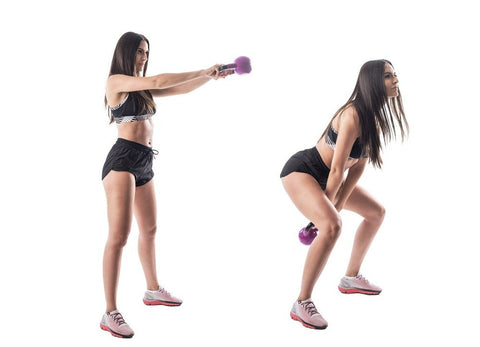When to Take a Pre-Workout
The use of pre-workouts or pre-workouts before competitions or demanding training sessions is a widespread practice in the world of sports and fitness. However, many doubts arise about their effectiveness, safety and the best way to use them.
In this article, we will answer the key questions about pre-workouts: What are they really for? Are they safe? How should they be taken to get the most out of their benefits? And above all, when is the best time to take a pre-workout?
What is a Pre-Workout?
A pre-workout is a supplement designed to optimize physical and mental performance before training or competition. Depending on its formulation, it may contain ingredients that improve energy, endurance, concentration and muscle strength.
Each pre-workout is unique and its effectiveness will depend on the ingredients it contains. Therefore, it is essential to analyze its composition before incorporating it into your routine.
What is a Pre-Workout for?
The main objective of a pre-workout is to enhance sports performance. Its most notable effects include:
-
Energy increase: some contain carbohydrates for immediate extra energy.
-
Stimulating effect: They promote mental and physical activation.
-
Improved recovery: They may include amino acids to reduce muscle fatigue.
-
Vasodilation: They optimize blood flow and muscle oxygenation.

Main Ingredients of a Pre-Workout
1. Energy
Some pre-workouts include carbohydrates to provide immediate energy. However, its consumption is usually recommended between 60 and 120 minutes before exercise, so in many cases gels or energy drinks are chosen instead of a conventional pre-workout.
2. Stimulants
Most pre-workouts include stimulant substances to increase alertness and resistance to fatigue. The most effective and studied is the caffeine, which improves focus and physical performance. Other compounds such as taurine may also be present, although their effectiveness is less conclusive.
It is important to verify that the chosen pre-workout does not contain prohibited or dangerous substances, especially for athletes undergoing anti-doping controls.
3. Recoverers
Some pre-workouts include amino acids such as BCAA (branched chain amino acids) to reduce muscle breakdown during exercise. However, it is advisable to complement the pre-workout with a more specific post-workout supplement for recovery, such as a protein shake.
4. Vasodilators
Vasodilators increase blood flow, improving the transport of oxygen and nutrients to the muscles. The most used ingredients in pre-workouts with this objective are:
-
Citrulline malate
-
Nitrates
-
Arginine (AAKG)
To maximize its effect, it is recommended to take a pre-workout with these compounds between 90 and 120 minutes before exercise.
>> SEE PRE-WORKOUTS ON AMIX <<
When to Take a Pre-Workout?
The timing of pre-workout intake is key to making the most of its benefits. Depending on the objective, general recommendations are:
-
For immediate energy: 5-15 minutes before training.
-
For mental and physical stimulation: 30-45 minutes before.
-
For vasodilator effects: 60-90 minutes before.
Each person metabolizes supplements differently, so it is important to try different intake times to find the one that best suits your body.
Are Pre-Workouts Safe?
In general, pre-workouts are safe if consumed appropriately and in moderation. However, there may be certain risks:
-
Positives in anti-doping controls: some pre-workouts may contain banned substances.
-
Side effects: insomnia, tachycardia or nervousness if excessive stimulants are consumed.
-
Minor discomfort: Beta-alanine may cause a temporary tingling sensation, which is harmless.
If you have doubts about its consumption, consult with a sports nutrition specialist before incorporating a pre-workout into your routine.
Who is a Pre-Workout Recommended for?
Pre-workouts are especially useful in high-intensity training, competitions or days when extra energy is required. They are recommended for:
-
Athletes and advanced sportsmen who seek to improve their performance.
-
People who train at low energy times, such as early in the morning or after a workday.
-
Situations of fatigue or lack of motivation, where extra energy can make a difference.
For beginners, it is best to first optimize nutrition, rest and hydration before resorting to supplements.
Benefits of pre-workouts
Continue reading more about the pre-workouts and their benefits.







Comments (0)
There are no comments for this article. Be the first one to leave a message!